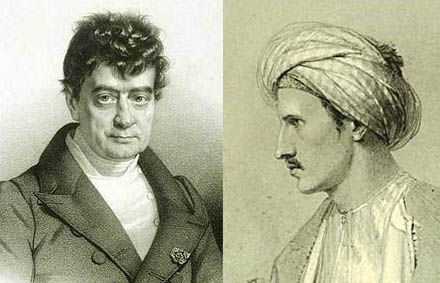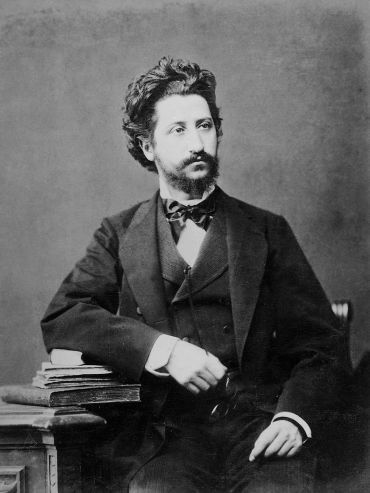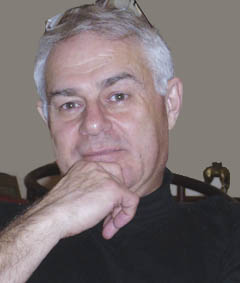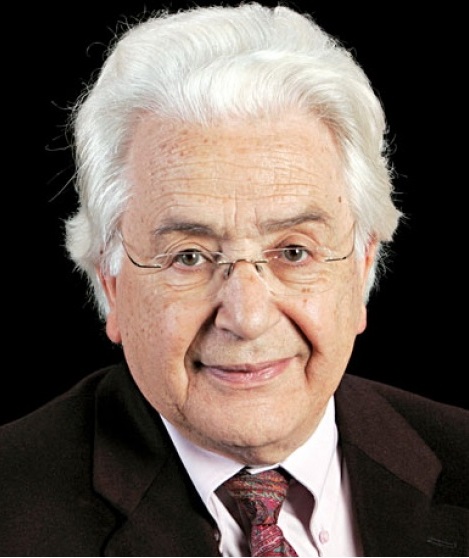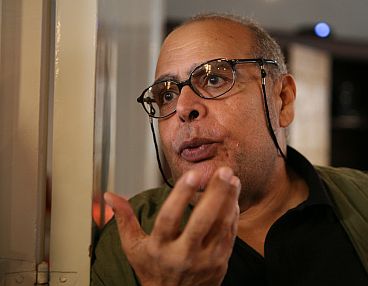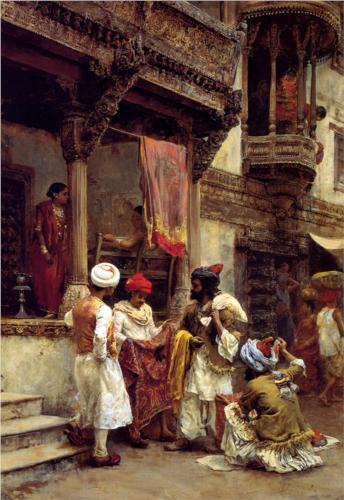
Let us turn back to Orientalism in the literal sense of the word. We can see that its major upsurge began in the middle of the 19th century or shortly before. From then until now, that is for a century and a half, we have seen the rise of a number of waves of great Orientalists. The first wave was represented by Sylvester De Sacy, Edward William Lane, Reinhard Dozy, Michael Jan de Goeje, Heinrich Fleischer, Krachkovsky in St Petersburg and others.[1]
BY HASHEM SALEH
AT THIS STAGE there appeared a translation of the Qur’ān into German by Gustav Fluegel in 1834. These early Orientalists prepared the way for the second upsurge by composing Arabic dictionaries and books of grammar and prosody. For knowledge of the Arabic language, that is the basic language of Islam, constituted the necessary first beginnings to the discovery of what was an unknown Islamic heritage. It therefore became possible for those who came after them to undertake for the first time a historical, philological, linguistic study of the Qur’ān. At the time there appeared the work of the famous German Orientalist Theodor Noeldeke: Geschichte des Korans (‘A History of the Qur’ān’).[2] This is considered to be a veritable Copernican revolution for Qur’ānic studies, for before its appearance we were understanding the Qur’ān one way, and after it in an entirely different way. In other words, before its appearance we were not understanding the Qur’ān properly. For the first time the historical methodology was now being applied to the text of Islam’s holy book. Noeldeke’s book was first published in 1860 but new sections were added to it by his students between the years 1909 and 1938. In this way the book chapters were completed.
This is an invaluable service rendered to our Arab, Islamic heritage
But there was another great service supplied by Orientalism to Arab Islamic studies, beyond that of dictionaries or works of grammar – and that is the research into ancient Arabic manuscripts using the historico-philological method. Now, for the first time, these dust-covered ancient manuscripts were extracted from the bowels of libraries and dark caves in order to be collated, emendated and printed in the most modern scholarly form. This is an invaluable service rendered to our Arab Islamic heritage, and one which is often forgotten by those who launch attacks upon Orientalism. Among the most important Orientalists who initiated this scholarly research into ancient manuscripts we might mention Moritz Steinschneider who specialised in the collation equally of Arab Muslim and Jewish manuscripts, and the famous Orientalist Carl Brockelmann who made a specialism of collating Arab manuscripts in general, whether Islamic, Christian or Jewish. We should also mention the Orientalist Georg Graf who specialised in the collation of Christian Arab manuscripts. From 1967 onwards the Turkish researcher Füat Sezgin[3] carried on the work of his Professor Brockelmann in collating ancient manuscripts, and the list goes on.
How many manuscripts were rescued by Orientalism from oblivion and disintegration! Who remembers with gratitude this sterling work of the Orientalist philologists, who burrowed into the depths of the heritage and its written records, in an endeavour as far removed as you could get from political affairs? What possible connection does this have with colonialism? It is ridiculous for us to condemn them on the grounds that they hailed from Western nations, from England, Germany or France. Doubtless there were other Orientalists who were, to a greater or lesser degree, associated with colonial administrations, but not these.
In addition to editing and collating manuscripts, the early pioneer Orientalists initiated the scholarly study of Islamic history. Of these we should mention the Orientalist Alfred Von Kremer who specialised in the study of Islamic cultural history, and Julius Wellhausen who specialised in the study of the political history of Islam.[4] The Orientalist Reinhard Dozy achieved fame in 1861 for his encyclopaedic work on the History of Muslim Spain.[5]
After all this information was collected together in the most important languages of Orientalism (English, German and French) it became possible to study Islam as a religion and to study Islamic societies and cultures. At this point major Orientalist scholars appeared on the scene such as Ignaz Goldziher, Hellmut Ritter and Louis Massignon[6] who paved the way for those who came after. We should add to these other, no less important, names such as the Orientalist Joseph Schacht a refugee from Nazism who took refuge in England where he obtained British citizenship and wrote his great works, which for the first time applied the historical method to Islamic fiqh or Sharīʻa with brilliant results.[7] His work is now being continued, developed and enriched by Professor Wael Hallaq at New York’s Columbia University.[8] He is an Arab researcher from Palestinian Christian origins, but also an Orientalist in the lofty and noble sense of the term.
The scientific, historical view broadens faith, enlightens and matures it
I shall offer here the following broad definition of ‘Orientalist’: anyone who applies the critical, philological, historical method to Islamic heritage is an Orientalist, be he of Western or Arab origin! So why are we afraid of this term? For in this sense the Pakistani Muslim Fazlur Rahman is also an Orientalist, and you can say the same for many Arab and Muslim researchers working in western research centres and universities in Europe and North America.
We should also mention Hamilton Gibb who made a special study of the history of Islamic institutions, in addition to the Austrian Orientalist Gustav Von Grunebaum who specialised in the study of the history of Islamic civilisation and culture. Nor should we forget the Orientalist Arendt Jan Wensink who studied Islam according to the theory of comparative religion.[9]
This new theory of comparison is unprecedented in respect to Islam and Muslims who are fenced up in a closed dogmatic enclosure– that is those who do not think that there is any other religion in the world but Islam, and that anything else is profound error. This should be remembered that this great Orientalist was behind the two great projects in the history of Orientalism and Islamic studies prior to the Second World War: the Encyclopaedia of Islam with its first edition coming out between 1913 and 1942, followed by the Supplement and special indices concerning the Islamic heritage. This appeared in eight volumes between the years of 1933 and 1989. Both projects were printed by the famous Orientalist publisher Brill in Leiden. It constitutes the basis of all the subsequent great Orientalist projects which we will come to in a moment.
After the Second World War there appeared three generations of Orientalists: the generation 1945-1960, the generation 1960-1990 and the current generation 1990-2013. These three generations have cast much light on our Arab Islamic heritage, particularly in studies on the Qur’ān, on the Prophet’s sīra and on Islamic history in general, starting from the early Islamic conquests and extending to the present day. Among the pillars of Orientalism in this phase we might mention Montgomery Watt, Regis Blachère, Henri Corbin, Henri Laoust, Jacques Berque, Claude Cahen, Roger Arnaldez, George Makdisi, Maxime Rodinson and Bernard Lewis, [10] and those who came after them such as John Wansbrough, Joseph Van Ess, Michael Cook, Patricia Crone, Angelika Neuwirth, Jacqueline Chabbi, Claude Gilliot, Gerd Rudi-Puin and Tilman Nagel[11] and dozens of others. Oriental Studies has made great strides over the last 30 or 40 years, and this is due to the renewal of its methodology with respect to the earlier generation of Orientalists from the 19th to mid-20th centuries. Scholarship by its very nature changes, as does methodology and terminology.
Orientalism is no longer the province of foreign researchers
One of the most important major collective projects undertaken during this period was the second edition of the Encyclopaedia of Islam. This edition is superior to the first and is at the same time more expansive and comprehensive. It illustrates Orientalist scholarship in the sober and precise sense of the word. Not only Western researchers but also Arab and Muslim researchers have been contributing to this, but they are all ‘Orientalists’ in this new meaning of the term – that is, they are skilled in applying the historical method to our Arab Islamic heritage. The Encyclopaedia of Islam is an inexhaustible treasure-store of information and analysis on this massive ancient heritage. It is indispensable for any student who is engaged in graduate-level studies in Islam.Following this there appeared in recent years a new and important encyclopaedia: the Encyclopaedia of the Qur’ān.[12] Overseeing this project was the American researcher Jane Dammen McAuliffe, but fellow participants have included Muslim and non-Muslim researchers of the calibre of Nasr Hamid Abu Zayd, Oleg Grabar, Widād al-Qādī, Mohamed Arkoun and dozens more. It has been published in five parts with a sixth part added as a comprehensive index to the project. The work reflects a historical view of the Qur’ān and the reader is
consequently able to compare this with the faith-based, reverential view of Muslim traditionalists. The one approach does not outlaw the other, for it is not our intention to bring an end to worship or to piety or faith, rather we simply wish to present the Muslim with another viewpoint on religion. We feel that the scientific historical view broadens faith, it enlightens and matures it, and does not necessarily act to diminish it.The only thing it reduces is the type of closed, fanatical faith that a priori hates others. For there is a type of faith that revives and restores, and there is a type of faith that blinds and kills. There is a vast difference between the two!
To all of the above we should add the Dictionnaire du Coran[13] published in Paris under the direction of the researcher of Iranian origin Mohammad Ali Amir-Moezzi. Participating in its production were no less than 28 academic researchers, Muslim and non-Muslim, among whom we should mention Mohammed Hocine Benkheira, Asma Hilali, Mohamed Arkoun, Francoise Micheau, Marie-Therese Urvoy, Francois Deroche and others.
So we can see that Orientalism in the scholarly, academic meaning of the term is no longer the province of foreign researchers but now embraces Arab and Muslim researchers skilled in scholarly research methodology who accept without hesitation that this methodology may legitimately be applied to their religious heritage. This may serve to blunt the enmity persisting in Arab and Muslim circles towards Orientalism and Orientalists, since intellectual cooperation between Arab and foreign researchers will actively contribute to the dialogue of cultures and civilisations.
Finally I would like to conclude this inaugural essay with the following: it is a great calamity that we are plagued by this boisterous, demagogic ideology that wars against modern scholarship methods under the pretext of defending the heritage! For in this way ignorance has become our ally and knowledge our enemy. So how are we to haul ourselves out of the swamp of backwardness we have fallen into? When I say this I do not suggest that Orientalist studies are in some way infallible. Not at all. Science does not admit of any infallibility. There are many criticisms one could make against Orientalism and Orientalists, since some of them have yet to fully free themselves from outdated preconceptions. But at least let us study their works before criticising them. How can we attack them and condemn them before studying what it is that they have done? If some of them are biased against us, there are others who attempt as far as they can to be fair and objective. Consequently one should not place them all in the same basket when it comes to academic Orientalism.
It is Orientalism alone that is able to present us with a true historical picture
We should remain aware that the image we have of our heritage is nothing if not glorificatory or reverential, and so it is Orientalism alone that is able to present us with a true historical picture. Are we then to refuse this? If so we would be harming ourselves, not Orientalism. Why? We would quite simply be delaying our intellectual emancipation and remain cut off indefinitely from the progress of science and culture. Arab intellectuals would in any case be unable to undertake the liberating work achieved by Orientalism for two reasons: a) because they would be incapable of applying new methodologies to the heritage; and b) because they would not dare attempt that without first forsaking their Arab homelands and taking up residence in Western countries so as to protect themselves from the anger of the man on the street and the men of the cloth.
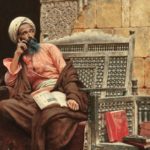
Suggested Reading
Orientalism and the historicization of the Islamic heritage – 1
All we have left to go on in either case is Orientalism, which has offered us these great services free of charge. For it was not motivated in the first degree by domination or hegemony but rather by a love of the virtue of knowledge and the pleasure of scholarly discovery. If I were a decision-maker in the Arab world I would immediately order the opening of a major centre devoted entirely to the specialist translation of the foundational works of Orientalism into our Arabic language. For this is the only way we may free ourselves from the accumulations of the past and from our inherited cultural self-isolation.
[1] Silvestre de Sacy 1838-1758, Edward William Lane 1801-1876, Reinhart Dozy 1820-1883, Michael Jan de Goeje 1836-1909, Heinrich Fleischer 1801-1888, Krachkovsky 1883-1951, Gustav Fluegel 1802-1879.
[2] Theodor Noeldeke 1930-1836: Geschichte des Korans.
[3] Moritz Steinschneider 1816-1907, Carl Brockelmann 1868-1956, Georg Graf 1875-1955, Füat Sezgin – 1924
[4] Alfred Von Kremer 1828-1889 , Julius Wellhausen 1844-1918,
[5] Dozy: History of Muslim Spain.1861
[6] Ignaz Goldziher 1850-1921, Hellmut Ritter 1892-1971, Louis Massignon 1883-1962.
[7] Joseph Schacht 1902-1972: An Introduction to Islamic Law.1982
[8] Wael Hallaq : An Introduction to Islamic Law, Cambridge University Press, 2009. Notice how Wael Hallaq has published a book with the same title as that of Joseph Schacht, the aim being to demonstrate new discoveries he was adding to his great predecessor. Wael Hallaq, of course, has many other works on the same subject.
[9] Hamilton Gibb 1895-1971, Gustav Von Grunebaum 1909-1972, Arendt Jan Wensink 1882-1939: Encyclopaedia of Islam. Concordance et indices de la tradition musulmane.
[10] Montgomery Watt 1909-2006, Regis Blachère 1900-1973, Henri Corbin 1903-1978, Henri Laoust 1905-1983, Jacques Berque 1910-1995, Claude Cahen 1909-1991, Roger Arnaldez 1911-2006, George Makdisi 1920-2002, Maxime Rodinson 1915-2004, Bernard Lewis 1916-…
[11] John Wansbrough 1928-2002, Joseph Van Ess 1934-…, Michael Cook 1940 – …, Patricia Crone 1945 -…, Angelika Neuwirth 1943-…, Jacqueline Chabbi 1943-…, Claude Gilliot 1940-…, Gerd Rudi-Puin 1940-…, Tilman Nagel 1942-….
[12] Jane Dammen McAuliffe : Encyclopaedia of the Quran. Brill. Leiden, 2001-2006. 5 volumes plus index.
[13] Mohammad Ali Amir-Moezzi : Dictionnaire du Coran. Robert Laffont. Paris, 2007.
